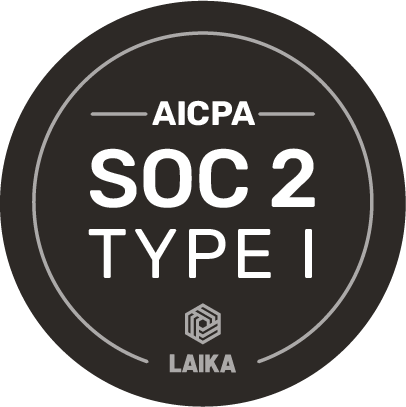The role of forward deployed engineers at Ribbon and beyond

A New Career Path For Engineers With Diverse Skills and Interests
As enterprise software has evolved to become more configurable and pervasive than ever before, there’s increasingly a need for engineers to work directly with customers to solve problems using software across a myriad of use cases. As their responsibilities are often specific to each product’s needs, these roles vary across companies and industries, and there are many different definitions and expectations for this role. You may see roles like Solutions Architect, Field Engineer, Solutions Engineer, Forward Deployed Engineer, and more.
This lack of uniformity in title has been a detriment to both candidates and hiring teams across industries. In this blog post, we’ll define a specific type of customer-facing “deployment engineering”, coined Forward Deployed Engineer (FDE), and explore the responsibilities and career opportunities for engineers with a unique mix of technical and generalist skills, both at Ribbon and beyond.
What is a Forward Deployed Engineer?
Forward Deployed Engineers (noun) 1. Software engineers with broad skills to enable many capabilities and use cases of enterprise software products by iterating closely with customers and bridging the gap between the product suite and a customers’ specific implementation needs.
Enterprise software products are increasingly targeting more complex use cases and integration needs, leading to more variability. As a result, it’s more common for customers to encounter gaps between the designed product suite and their implementation needs. An FDE works closely with the client to ensure proper technical integration and the ongoing success of a product’s deployment.
FDEs sit in a crucial position in an enterprise software organization, working across multiple teams to ensure success:
- Engineering: contributes to internal codebases; works with core engineering to communicate technical topics to external stakeholders
- Product: communicates the discovery of potential product features from external stakeholders, works with product to roadmap new features, iterates through the engineering lifecycle with product to deliver new uses cases
- Revenue Growth: joins sales meetings with non-technical external stakeholders in a technical advisory role, leads technical sales calls and meetings with external technical stakeholders, completes RFPs to unlock new revenue
- Customer Success: provides technical support, acts as technical lead for customer implementations, onboarding, and new feature deployment into customers’ production environments
Because this role requires interacting with so many stakeholders and switching between technical and business domains, a unique breadth of skills is needed, which can make hiring tricky. Many candidates are either technical enough but lack the desire or ability to work well with customers or the reverse. Finding individuals who have just the right balance of skills can be particularly tricky, making hiring for this role particularly challenging!
An Emerging Growth Path For Engineers
FDE work requires a unique mix of technical skills, an entrepreneurial mindset, and product intuition across a broad range of internal and external teams. For engineers who seek to be both customer-facing without sacrificing the technical components of an engineering role, this is an emerging path.
In the usual growth path for engineers, engineers can specialize in one technical dimension as an individual contributor or move to leadership in a staff engineering role early on. In an FDE growth path, comfort in multiple settings is a core competency and desperately needed to succeed in this role.
This emerging career path and growth trajectory for engineers into an FDE role can present a few unique challenges:
- Often, hiring teams are unfamiliar with evaluating prior experience. Rather than looking for a strong hybrid of technical and external-facing skill sets, hiring teams may over-index on one.
- The combination of non-technical and technical work is more difficult than focusing on just one, and compensation for hybrid roles is traditionally bound by the non-technical or technical responsibilities and not the aggregation of both.
At Ribbon, however, we think that this unique set of skills should be recognized and celebrated. We believe the FDE role enables engineers to hone a unique combination of skills, thereby opening many career growth opportunities. For example, FDEs at Ribbon can choose to grow their careers within the team or take entrepreneurial learnings to new products altogether. Here are some of the ways we believe FDEs can grow at Ribbon and in similar roles at other companies.
- Staff FDEs or FDE Lead: Within the team, FDEs can be promoted into Staff FDEs, tackling the newest, highest-impact, and most complex challenges from customers and mentoring other engineers on the team. Alternatively, FDEs can become an FDE Lead and shift to hiring and onboarding new FDEs, planning individual and team growth, and managing cross-team collaboration.
- Software, Platform, or Sales Roles: FDEs might also choose to join other teams at Ribbon, building on the experience gained from this hybrid role. As a Software Engineer or Software Architect, former FDEs could apply their learnings from working with various customers and complex challenges to building a part of the Ribbon platform. They might also choose to become Platform Product Engineers or Leads to transition to a product management role or Sales Engineers to help the sales team with technical support to close additional revenue. FDEs might also choose to explore these paths at different companies.
- CTO and/or Founder: FDEs have highly transferable skill sets beyond these internal growth paths. Former FDEs might even choose to become startup founders or CTOs. The FDE role requires knowledge about the company’s technology beyond what’s usually required of software engineers. The ability to understand a company’s codebase, technology stack, and architecture and then communicate that to external stakeholders, many of whom may be non-technical, is just one example of a skill required for FDEs that is also usually a necessary skill of a CTO.
We recognize the many different career paths that lie in front of FDEs and support whichever one they’re most interested in—whether that’s going deeper in one particular direction or staying on the FDE path and growing in that role. To invest in engineers who fit the FDE profile, we believe it’s important to recognize the many different career paths that lie in front of them, and support whichever one they’re most interested in—whether that’s going deeper in one particular direction or staying on the FDE path and growing in that role.
Forward Deployed Engineers and Ribbon Health
Working in healthcare presents unique challenges and opportunities for FDEs. At Ribbon, we’re building a modern tech platform that allows digital health startups to move and quickly iterate as they build the next generation of innovative healthcare products. We also meet enterprise health systems and health plans where they are to help them adopt Ribbon data into their existing tech stacks. Our core product has so many different applications and implementations, and FDEs play a critical role in ensuring that we’re empowering our customers to have an impact on the complicated world of healthcare.
The FDE role is an incredibly valuable and critical role to us—it’s their work that ensures our product is used to simplify healthcare decisions. If you’re interested in joining us in making every healthcare decision convenient, high-quality, and cost-effective, check out our open FDE roles.
Read more about our company and culture

Ribbon Health Named 2023 MedTech Breakthrough Award Winner

Fierce Healthcare names Ribbon Health as one of its 2023 “Fierce 15” companies






.png)